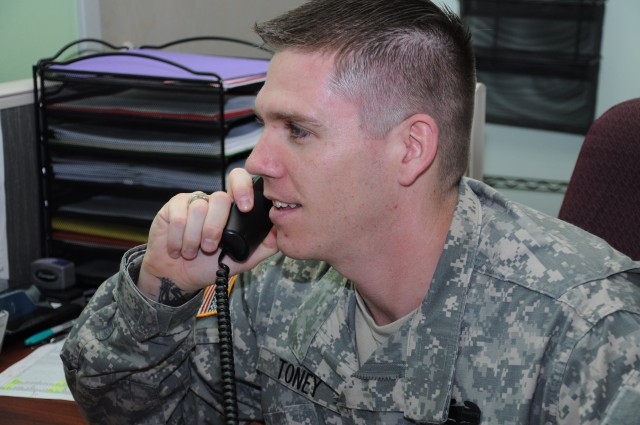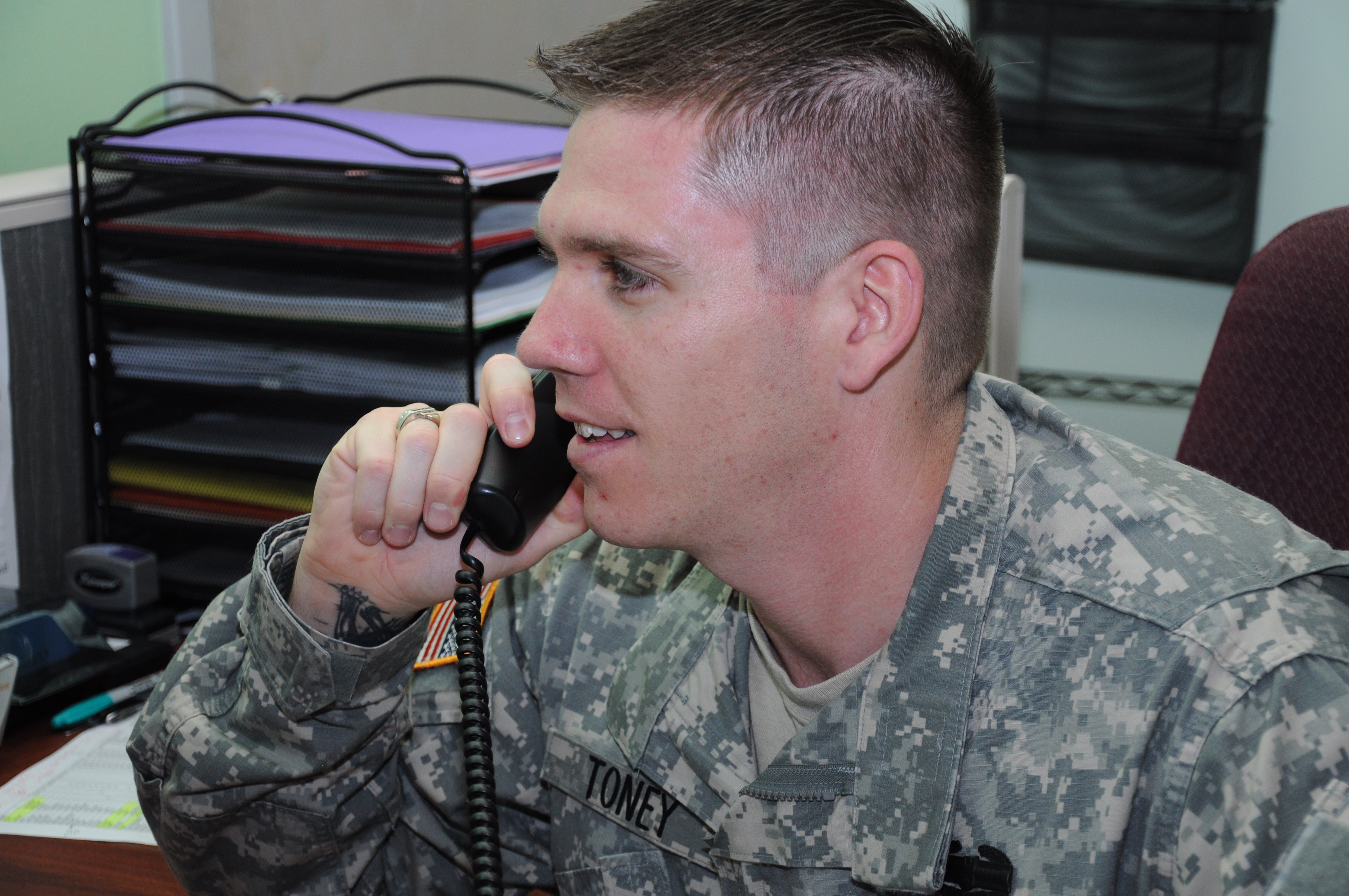FORT JACKSON, S.C. -- While Fort Jackson is known as one of the Army's largest training installations, one unit is responsible for Soldiers who do their training thousands of miles away.
The Student Detachment, which operates under the 4th Battalion, 10th Infantry Regiment, currently supports more than 2,300 Soldiers in 47 countries; Soldiers whose training takes place in locations as diverse as Alabama, Australia and Japan.
"Whether in Nebraska or Kyoto, Japan, these Soldiers and families are away from a military base, cut off from easy access and in many cases isolated from military and government facilities," said Lt. Col. Richard MacDermott, commander of the 4-10th. "We are their lifeline."
The detachment, which employs 10 Soldiers and seven civilians, meets pay, travel and administrative requirements for the students. The Soldiers assigned to the detachment typically are obtaining degrees at universities or are training with private companies in support of their Army profession. Some are completing their in-country training requirements after studying a foreign language at the Defense Language Institute in Monterey, Calif.
After the recent earthquake and tsunami in Japan, Sgt. Michael Toney, who is a team leader at the Student Detachment, had to spring into action as the noncommissioned officer responsible for the detachment's Army Disaster Personnel Accountability and Assessment System.
"ADPASS is a system the Army created to track personnel during situations like this," Toney said. "Let's say there's no telephone communications, but (Soldiers) have access to a computer or vice versa. You can call into a number or go on a website and account for yourself. It goes through the Army-wide system and lets everybody know that you're accounted for and that you're good to go."
During the time of the disaster, 56 Soldiers and family members were assigned to the Student Detachment, all of whom were accounted for.
MacDermott praised the efforts by the members of the detachment.
"Monitoring Soldiers in various locations like Japan, Korea and other parts of the world ... takes a special blend of dedication and cooperation by the Soldiers and civilians who work there," he said. "Many times they have to work with other posts and government agencies to get the Soldiers the support and pay they are authorized. Imagine being in Australia and having to file your (Permanent Change of Station) travel claim, find housing while in temporary lodging and get a pay advance all without a local finance office to go to."
Toney, whose military occupational specialty is 42A (human resource specialist), said the biggest requirement to be successful in his job is to be able to communicate with enlisted Soldiers and officers of all ranks.
"Being a 42A, you can pretty much learn everything and train everything, but if you can't communicate with (the students) and you're kind of afraid of their rank, it makes the job difficult," he said.
He said he loves his job because of the variety of situations he gets to deal with.
"The knowledge you leave here with is incredible," Toney said. "On average, (as a human resource specialist) in a (Forces Command) unit, you'll deal with about 10 percent of the unit. Ten percent of a normal unit is only about 50 or 60 people. Here, it's 200 to 250 (you deal with). You get the opportunity to constantly be helping Soldiers."
Editor's note: The Student Detachment falls within objective 1.3 of the Campaign Plan by providing training support systems.


Social Sharing